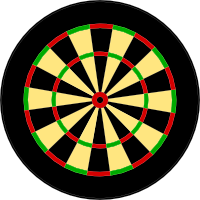Associations to the word «Target»
Noun
- Warhead
- Bombing
- Missile
- Mrna
- Radar
- Antibody
- Drone
- Specificity
- Axon
- Kinase
- Advertiser
- Bomber
- Ligand
- Antigen
- Sniper
- Civilian
- Receptor
- Apoptosis
- Tracking
- Bomb
- Inflation
- Phosphorylation
- Surveillance
- Terrorist
- Inhibitor
- Vesicle
- Genes
- Tyrosine
- Rna
- Audience
- Decoy
- Laser
- Assassination
- Peptide
- Selectivity
- Protein
- Munition
- Localization
- Launcher
- Transcription
- Inhibition
- Attack
- Insecticide
- Nsa
- Signaling
- Retaliation
- Pathway
- Precision
- Harassment
- Raid
- Luftwaffe
- Specific
- Cleavage
- Polymerase
- Subunit
- Dna
- Probe
- Neurotransmitter
- Attacker
- Mortar
- Sensor
- Primer
- Molecule
- Compiler
- Launching
- Lymphocyte
- Vulnerability
Adjective
Adverb
Pictures for the word «Target»
Wiktionary
TARGET, noun. A butt or mark to shoot at, as for practice, or to test the accuracy of a firearm, or the force of a projectile.
TARGET, noun. A goal or objective.
TARGET, noun. A kind of small shield or buckler, used as a defensive weapon in war.
TARGET, noun. (obsolete) A shield resembling the Roman scutum. In modern usage, a smaller variety of shield is usually implied by this term.
TARGET, noun. (sports) The pattern or arrangement of a series of hits made by a marksman on a butt or mark.
TARGET, noun. (surveying) The sliding crosspiece, or vane, on a leveling staff.
TARGET, noun. (rail transport) A conspicuous disk attached to a switch lever to show its position, or for use as a signal.
TARGET, noun. (cricket) the number of runs that the side batting last needs to score in the final innings in order to win
TARGET, noun. (linguistics) The tenor of a metaphor.
TARGET, noun. (translation studies) The translated version of a document, or the language into which translation occurs.
TARGET, noun. A person (or group of people) that a person or organization is trying to employ or to have as a customer, audience etc.
TARGET, noun. (UK) (dated) A thin cut; a slice; specifically, of lamb, a piece consisting of the neck and breast joints.
TARGET, noun. (Scotland) (obsolete) A tassel or pendant.
TARGET, noun. (Scotland) (obsolete) A shred; a tatter.
TARGET, verb. (transitive) To aim something, especially a weapon, at (a target).
TARGET, verb. (transitive) (figuratively) To aim for as an audience or demographic.
TARGET, verb. (transitive) (computing) To produce code suitable for.
TARGET AUDIENCE, noun. (marketing) The primary group of people that something, usually an advertising campaign, is aimed at appealing to.
TARGET AUDIENCES, noun. Plural of target audience
TARGET CELL, noun. Any cell having a specific receptor for an antibody, antigen or hormone
TARGET CELL, noun. An abnormal red blood cell with a ringed appearance, associated with some anemias
TARGET CELLS, noun. Plural of target cell
TARGET DOMAIN, noun. Within a conceptual metaphor, the conceptual domain that we try to understand in terms of source domain.
TARGET GROUP, noun. (marketing) The primary group of people that something, usually an advertising campaign, is aimed at appealing to.
TARGET LANGUAGE, noun. (linguistics) (translation studies) The language into which a translation is done.
TARGET LANGUAGE, noun. (computing) The machine language into which source code is to be compiled
TARGET LANGUAGES, noun. Plural of target language
TARGET MAN, noun. (soccer) centre forward
TARGET MARKET, noun. A group of people whose needs and preferences match the product range of a company and to whom those products are marketed
TARGET PRACTICE, noun. Any exercise in which projectiles are fired at a specified target, typically for the purpose of improving aim.
TARGET PRACTICE, noun. The target of such exercise, especially figuratively as an easy target.
TARGET RATING POINT, noun. A metric that estimates how well a television programme or advertisement reached its target audience
TARGET TEXT, noun. (translation studies) The finished product of a translated text, often abbreviated as TT.
TARGET TEXTS, noun. Plural of target text
Dictionary definition
TARGET, noun. A reference point to shoot at; "his arrow hit the mark".
TARGET, noun. A person who is the aim of an attack (especially a victim of ridicule or exploitation) by some hostile person or influence; "he fell prey to muggers"; "everyone was fair game"; "the target of a manhunt".
TARGET, noun. The location of the target that is to be hit.
TARGET, noun. Sports equipment consisting of an object set up for a marksman or archer to aim at.
TARGET, noun. The goal intended to be attained (and which is believed to be attainable); "the sole object of her trip was to see her children".
TARGET, verb. Intend (something) to move towards a certain goal; "He aimed his fists towards his opponent's face"; "criticism directed at her superior"; "direct your anger towards others, not towards yourself".
Wise words
Actions speak louder than words.







